
Book
Korytkowska and Hatłas's essay, blurring the boundaries between cinema and literature, is a universal story about the difficulty and the satisfaction directly associated with any act of creation.
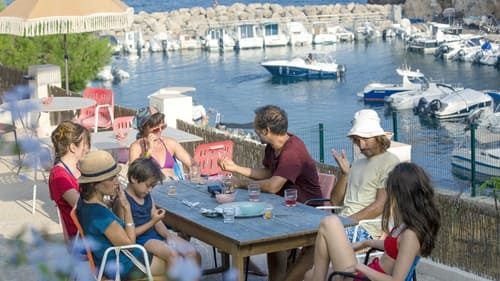
Writer
It’s summer, the heat is overwhelming and the weather is out of whack. A group of friends are enjoying their yearly holiday in their favorite little village, wedged between the sea and the mountains. As usual, they are bored and eat and drink a lot. They do not pay attention to the fire which progresses on the mountain nearby, nor to the world around them. But this year, a mysterious man arrives from the sea and shakes up their seemingly balanced existence...

Self (archive footage)
In May 1974, Valéry Giscard d'Estaing became President of the Republic and wanted to bring about a new era of modernity. One of his first decisions was to break up the ORTF with the creation of three new television channels: TF1, Antenne 2 and FR3. Three new public channels but autonomous and competing. It is a race for the audience which is engaged then, and from now on the channels will make the war! This competition will give birth to a real golden age for television programs, with variety shows in the forefront. The stars of the song are going to invade the living rooms of the French for their biggest pleasure. This unedited documentary tells the story of the metamorphosis of this television of the early 1970s, between freedom of tone, scandals, political intrigues and programs that have become mythical.
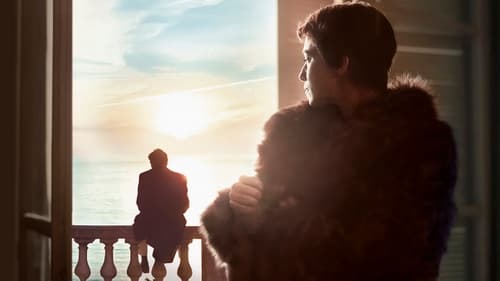
Theatre Play
Accompanied by her lover, Suzanna, 40, views a Riviera beach house for her family's summer vacation. This day, this break in her routine, in this new house, will mark a turning point in her life. Based on the Marguerite Duras play of the same name, Suzanna Andler is the portrait of a woman trapped in her marriage to a wealthy, unfaithful businessman in the 1960s. She must choose between her conventional destiny as a wife and mother, and her freedom, embodied by her young lover.
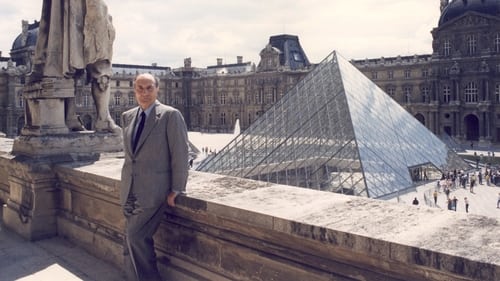
Self (archive footage)
On the occasion of the fourty years anniversary of François Mitterand's election, a look back to the relationship between the President and artists, from admiration to manipulation.

Self
25 years ago, Marguerite Duras passed away at the age of 81. At the evocation of this name, one spontaneously thinks of the intellectual superstar Duras, adulated or hated, with her big glasses and turtleneck, who received the Goncourt prize for her mythical novel, "L'Amant". But behind the superstar writer, who either fascinates or annoys, and behind his double novel, the young Indochinese girl, with her hair pulled back and lips underlined with lipstick, which is precisely the subject of "L'Amant", are hidden other, perhaps less well-known facets of the character, a writer, but also a filmmaker, journalist, a woman committed to the left, a transient lover or a loving mother. Marguerite Duras will have had 1000 lives in one and many other faces. This film attempts to get as close as possible to this extraordinary destiny.
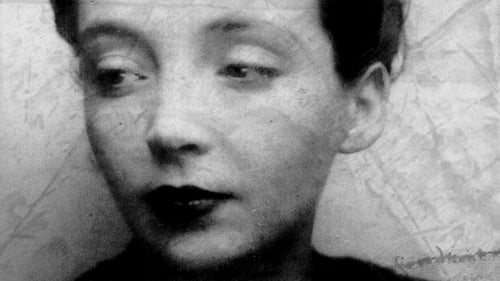
Self - Writer (archive footage)
When French writer Marguerite Duras (1914-96) published her novel The Sea Wall in 1950, she came very close to winning the prestigious Prix Goncourt. Meanwhile, in Indochina, France was suffering its first military defeats in its war against the Việt Minh, the rebel movement for independence.

Self (archive footage)
In the 70s, actress Delphine Seyrig and director Carole Roussopoulos, both militant feminists, were the pioneers of video activism in France. They documented the demonstrations of French feminists and used the new technologies to counter the poor representation of women in the public media.

Self (archive footage)
About the Gabriel Matzneff affair and pedophilia in French culture and society from the 1950s to the present day. "It was not very difficult to know who Matzneff was at the time." Vanessa Springora denounces thus, in an interview with the Parisian , the support which benefited the writer Gabriel Matzneff , in the years 1970 and 1980. The author fifties then maintains an affair with the young girl, aged 14 years. A relationship under control that the editor tells in Le Consentement (éd. Grasset), published Thursday. "After having analyzed the work " , the Paris public prosecutor's office announced Friday January 3 the opening of an investigation for "rapes committed on the person of a minor of 15 years".

Novel
X, a film location scout, spend his time travelling from place to place looking for filming locations, at the same time that he's looking for funding for the film he wrote himself. In the middle of nowhere, as in the nowhere of his life, he stumbles on Y, the woman for whom he has been waiting all his life.
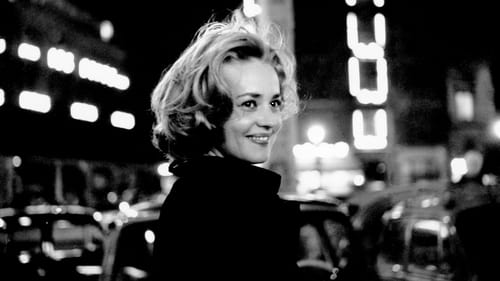
Self - Writer (archive footage)
An account of the life of actress Jeanne Moreau (1928-2017), a true icon of the New Wave and one of the most idolized French movie stars.
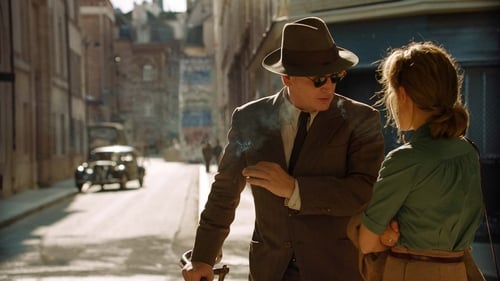
Novel
In the last days of the Nazi-occupied France, writer Marguerite Duras awaits the return of her husband, Robert Antelme, arrested for being a Resistance fighter and then deported, while she maintains a tense relationship with her ambiguous lover and a dangerous game with a French collaborationist. Even when the Liberation arrives, she must still endure the unbearable pain of waiting.

Self (archive footage)
40 years of "Apostrophes". Hours and historical meetings, Pierre Assouline has composed an anthology of the best extracts presented in the form of a primer, which he had commented on by a surprised Bernard Pivot.

Novel
Pierre and Maria, a Parisian couple, travel to Spain with their daughter and her friend. When a violent storm hits they must settle for the night in a tiny hotel in a small Andalusian city. This small city has been the scene of a crime of passion. The police search the murderer, an immigrant worker. The whole city is aroused by this murderous act which roused resentment and a dangerous desire for vengeance...

self (archive footage)
Documentary on famous writer Marguerite Duras and her paradoxical relation to the seventh art by her former film editor.

Novel
The film centers around a young French widow and her two adolescent children attempt to carve out a meager life for themselves by farming rice fields alongside the ocean in French Indo-China in the 1930's. Their efforts are hampered each year by the presence of the sea, which invariably floods the fields with saltwater and wipes out the crops. In desperation, the mother realizes that their only hope lies in the construction of a sea wall to prevent continued flooding, but the mother must cut a swath through the local bureaucracy in an almost Sisyphean attempt to make this happen. Meanwhile, her obstinate daughter, Suzanne, draws the romantic obsessions of a well-to-do Chinese gentleman, Monsieur Jo; though he could easily provide a way out, the possibility of a romantic relationship between Jo and Suzanne could just as easily fall prey to local racial prejudices that would damage or ruin the lives of both.

Author
An alcoholic married man discovers he has fallen out of love with his moody wife.

(voice)
Luc Lagier puts Alain Resnais' film back in its historical context and in the filmmaker's biography. He tells the story, then the development of what was originally intended to be a short documentary film and which turned into an unusual allegory. Composed of fascinating archives, including notably the correspondence between Duras and Resnais, this analysis of 'Hiroshima mon amour' manages to put the film in perspective while detaching itself from it. A rare and captivating work.

Novel
Set mostly in the woods in the south of France, a fateful encounter changes the lives of a man and a woman.

Author

Herself (archive)
On June 3, 1991, Marguerite Duras gave me her last published work, "The North China Lover", autographed for the first time. She wrote: "For my friend Dominique Auvray, in memory of a wonder of wonders: a still recent past, when we worked together in the cinema". This is a portrait of her as she was cheerful and serious, authentic and provocative, considerate and categorical, but first and foremost young and free.

Adaptation
The Malady of Death is an adaptation of Marguerite Duras's story of the same name: her text comprises the voiceover, which is a particular reading of the story in which word and image, in a complex interplay, explore male sexuality.

When Duras saw 'La mort du jeune aviateur anglais', she told Benoît Jacquot that the film was about him, not her. "She treated me like a thief. So I offered to make another film, where she could say whatever she wanted about her life as a writer. That’s how we did Écrire. I brought the same film crew. We went to her house at Neauphle-le-Château and we set up in the room she called 'the music room,' where there was a piano and you could listen to records. She settled in and for two days of non-stop filming, she talked."

Marguerite Duras tells the story of the death of a young English aviator in a French village.
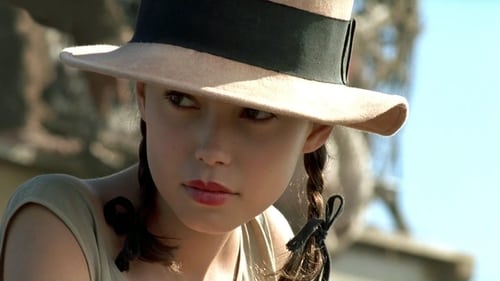
Novel
1920年代、当時フランス領だったインドシナが舞台。富豪の中国人青年とその愛人である15歳のフランス人少女との間に芽生えた、許されない恋を描く。究極なまでに美しいラブ・ロマンス。

Writer

Original Story
The film tries to retain the memory, the compulsion and the nostalgia of a text by Marguerite Duras.

Novel
In the space of a short 65 minutes, a woman enters the luxury apartment of a wealthy man with an eccentric fascination for the female form and is paid both for her sexual favors and for lying there naked and letting him examine the aesthetics of her body. For most of the hour, as the concise narration of Marguerite Duras' novel on eroticism and aesthetics fills the aural gaps, actress Marie Colbin's form fills the visual gaps. But unless viewers consider the feminine eyeball or microscopic views of skin exotic and worth lingering over, the eroticism lies more in the imagination than on the screen. In fact, the female body lying on the bed, taken away from the spirit that animates it, is really just a corpse -- raising the question, exactly what is the "malady of death?"

Writer
Ernesto, a seven-year-old boy who has the body of a thirty-year-old man, decides, upon attending his first day of school, that he no longer wishes to attend, because he does not wish to be taught matters that he does not know.

Director
Ernesto, a seven-year-old boy who has the body of a thirty-year-old man, decides, upon attending his first day of school, that he no longer wishes to attend, because he does not wish to be taught matters that he does not know.

Herself
She was the sort of woman who spared neither herself nor others—and arguably qualifies as 20th-century France’s greatest femme de lettres. In this interview, the late novelist and filmmaker talks openly about the hardship and the romance of her childhood in French Indochina, sharing how this period haunted her life and shaped her work. Excerpts from her films and readings from her books by actress Elizabeth Rider and Duras herself—including The Lover, winner of the Prix Goncourt and translated into more than forty languages—bring to life those formative years in Vietnam.

Conversation between a woman (Duras) and a man (D. Noguez) about a woman and a man.

Self
This afterword to India Song (Duras' celebrated 1975 film) is organized in several parts. It begins with an interview to Marguerite Duras by Dominique Noguez, an expert in her work; the interview links the film to the two movies whom it's related to: The Ravishment of Lol V. Stein and The Vice-Consul.
Several themes are tackled: childhood, autobiographical traces, relationships between differents characters and different films and more. India Song's main actors — Delphine Seyrig and Michael Lonsdale, who played Anne-Marie Stretter and the French vice-consul — join the conversation and talk about their roles and their craft. Marguerite Duras then evokes her memories of the shooting with the composer Carlos D'Alessio and her camera operato Bruno Nuytten.
The conversations are punctuated by clips of the film.

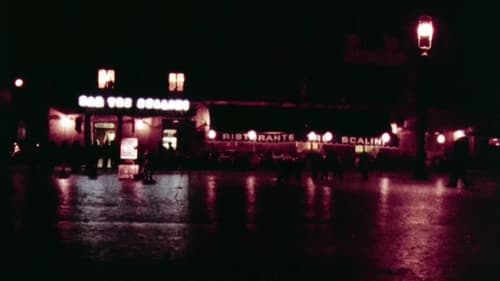
Writer
'The subject of this film is the conversation between a man and a woman. A couple, maybe lovers, maybe married, it doesn't matter. (...) During this conversation, we do not see but the city of Rome. I wanted to transmit that what Rome provokes in me, the feeling of an intrinsic matter, indissoluble, in difference with Paris, made of small parks and open spaces, crossed by the sky and the wind. Hand in hand with the film, the difficulty of the two lovers assumes a clearer, more explicit form. But as much as, in my opinion, it is impossible to describe and film Rome, the difficulty in the love of a couple can never be totally understood.' - Marguerite Duras, Venice film festival catalogue, 1982.

Director
'The subject of this film is the conversation between a man and a woman. A couple, maybe lovers, maybe married, it doesn't matter. (...) During this conversation, we do not see but the city of Rome. I wanted to transmit that what Rome provokes in me, the feeling of an intrinsic matter, indissoluble, in difference with Paris, made of small parks and open spaces, crossed by the sky and the wind. Hand in hand with the film, the difficulty of the two lovers assumes a clearer, more explicit form. But as much as, in my opinion, it is impossible to describe and film Rome, the difficulty in the love of a couple can never be totally understood.' - Marguerite Duras, Venice film festival catalogue, 1982.

Narrator
TV series directed by Varda in which she gives thoughts to her favorite images and why she is drawn to them (in short one minute segments per image)
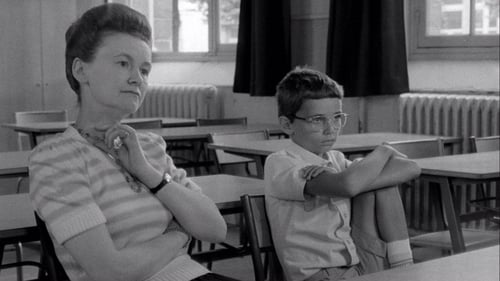
Novel
The child Ernesto doesn't want to go to school any more because, as he says, all he is taught there is things he doesn't know.

Short Story
The child Ernesto doesn't want to go to school any more because, as he says, all he is taught there is things he doesn't know.
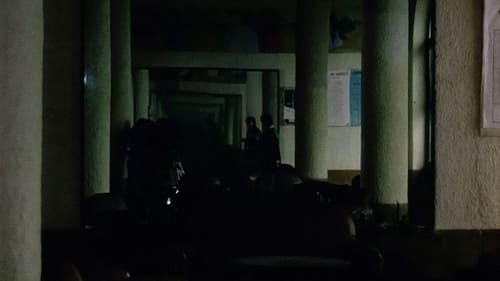
Narrator (voice)
When everything was ready for my death, I began to write of what I know precisely, which you’ve never understood, knowing you would never understand … I have made a film out of your absence.

Writer
When everything was ready for my death, I began to write of what I know precisely, which you’ve never understood, knowing you would never understand … I have made a film out of your absence.

Director
When everything was ready for my death, I began to write of what I know precisely, which you’ve never understood, knowing you would never understand … I have made a film out of your absence.
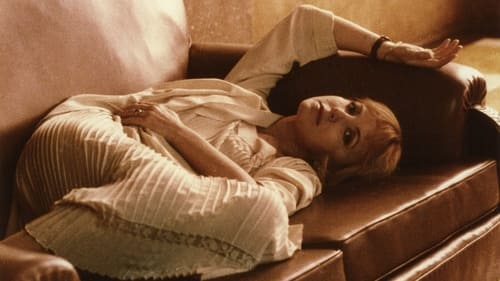
Narrator (voice)
A man and his sister meet at a seaside village to discuss their relationship.

Writer
A man and his sister meet at a seaside village to discuss their relationship.

Director
A man and his sister meet at a seaside village to discuss their relationship.

A documentary about filmmaker Marguerite Duras.
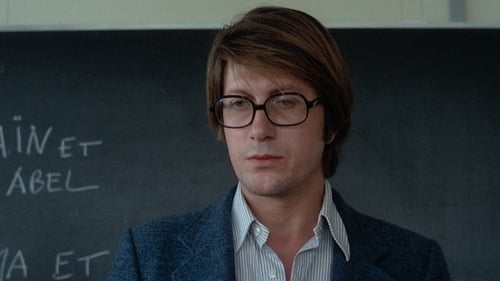
Herself (Archive sound)
A look at the sexual and professional lives of three people—a television director, his ex-girlfriend, and a sex worker.
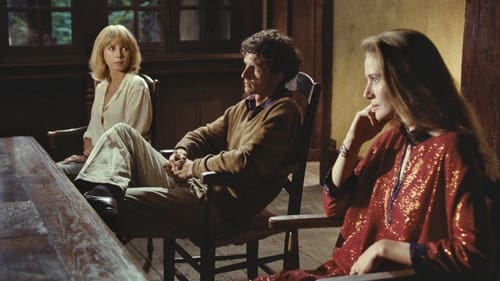
Screenplay
Each night in Paris, hundreds of men and women anonymously use telephone lines that date from the German Occupation and are no longer listed to talk to each other, to love each other. These people, shipwrecked lovers, are dying to love, to escape the abyss of solitude.

(voice)
Each night in Paris, hundreds of men and women anonymously use telephone lines that date from the German Occupation and are no longer listed to talk to each other, to love each other. These people, shipwrecked lovers, are dying to love, to escape the abyss of solitude.

Director
Each night in Paris, hundreds of men and women anonymously use telephone lines that date from the German Occupation and are no longer listed to talk to each other, to love each other. These people, shipwrecked lovers, are dying to love, to escape the abyss of solitude.
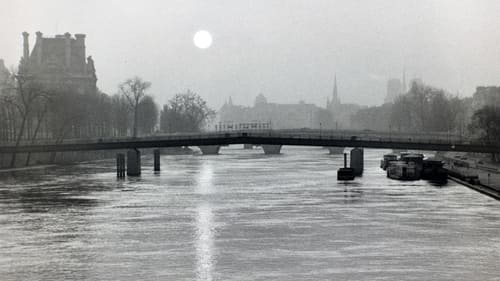
Narrator
Based on the letters of a fictitious poetess to her lover. Duras reads extracts from the letters, about the poetess’s Jewish past, while the film shows stark waves beating against the seashore. – BFI

Writer
Based on the letters of a fictitious poetess to her lover. Duras reads extracts from the letters, about the poetess’s Jewish past, while the film shows stark waves beating against the seashore. – BFI

Writer
Based on the letters of a fictitious poetess to her lover. Duras reads extracts from these letters, as the film shows a boat journey down the Seine, past familiar bridges and landmarks. – BFI

Director
Based on the letters of a fictitious poetess to her lover. Duras reads extracts from these letters, as the film shows a boat journey down the Seine, past familiar bridges and landmarks. – BFI

Director
Based on the letters of a fictitious poetess to her lover. Duras reads extracts from the letters, about the poetess’s Jewish past, while the film shows stark waves beating against the seashore. – BFI

Writer
On images of the Tuileries Gardens, Marguerite Duras recalls Césarée, an ancient destroyed city.

Director
On images of the Tuileries Gardens, Marguerite Duras recalls Césarée, an ancient destroyed city.

Narrator (voice)
Duras narrates a short story while the camera travels through the streets of Paris with short interludes of solemn music.

Writer
Duras narrates a short story while the camera travels through the streets of Paris with short interludes of solemn music.

Director
Duras narrates a short story while the camera travels through the streets of Paris with short interludes of solemn music.
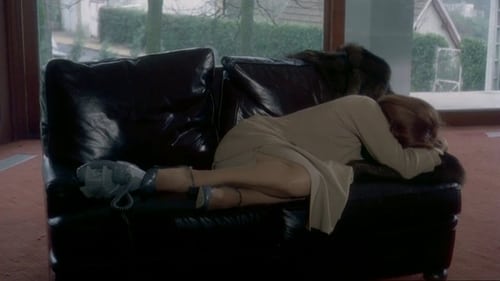
Narrator (voice) (uncredited)
In an empty villa, Vera Baxter sits and contemplates her life, as she recounts to a woman who was drawn to the villa when she heard the name Vera Baxter pronounced. Vera tells her about her no-good husband, who has been using her to keep his failing business afloat, up to her present love affair.

Writer
In an empty villa, Vera Baxter sits and contemplates her life, as she recounts to a woman who was drawn to the villa when she heard the name Vera Baxter pronounced. Vera tells her about her no-good husband, who has been using her to keep his failing business afloat, up to her present love affair.

Director
In an empty villa, Vera Baxter sits and contemplates her life, as she recounts to a woman who was drawn to the villa when she heard the name Vera Baxter pronounced. Vera tells her about her no-good husband, who has been using her to keep his failing business afloat, up to her present love affair.
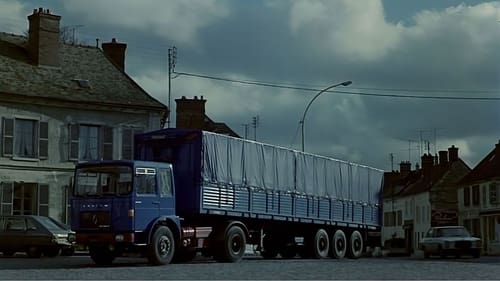
Writer
In this most talky and personal of films, director Marguerite Duras and actor Gerard Depardieu do an on-camera read-through of a movie script. Occasionally, the director comments about the characters or their motivations, and sometimes the actor does. That's all -- there is no action, there are no location shots, no one pretends to be anything else. The script itself tells about an encounter between a blank-slate of a woman hitchhiker, and a communist truck driver. As the reading progresses, Duras comments bitterly about the failed ideals of communism and the glorious revolution that will probably never happen.

elle
In this most talky and personal of films, director Marguerite Duras and actor Gerard Depardieu do an on-camera read-through of a movie script. Occasionally, the director comments about the characters or their motivations, and sometimes the actor does. That's all -- there is no action, there are no location shots, no one pretends to be anything else. The script itself tells about an encounter between a blank-slate of a woman hitchhiker, and a communist truck driver. As the reading progresses, Duras comments bitterly about the failed ideals of communism and the glorious revolution that will probably never happen.

Director
In this most talky and personal of films, director Marguerite Duras and actor Gerard Depardieu do an on-camera read-through of a movie script. Occasionally, the director comments about the characters or their motivations, and sometimes the actor does. That's all -- there is no action, there are no location shots, no one pretends to be anything else. The script itself tells about an encounter between a blank-slate of a woman hitchhiker, and a communist truck driver. As the reading progresses, Duras comments bitterly about the failed ideals of communism and the glorious revolution that will probably never happen.

Screenplay
An old lady returns from Africa where she made a fortune to find her son in Paris, whom she has not seen in five years, with the intention of bringing him back with her. But this project fails.

Theatre Play
An old lady returns from Africa where she made a fortune to find her son in Paris, whom she has not seen in five years, with the intention of bringing him back with her. But this project fails.

Director
An old lady returns from Africa where she made a fortune to find her son in Paris, whom she has not seen in five years, with the intention of bringing him back with her. But this project fails.
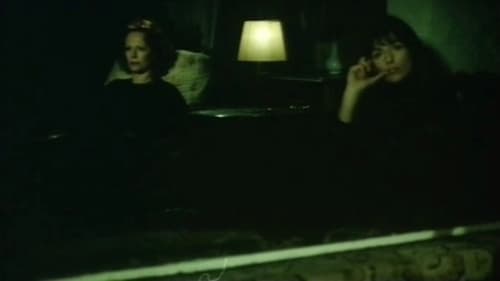
The full soundtrack to Marguerite Duras' 1975 film India Song, about a French ambassador's wife in 1930s India, is here repurposed with all new cinematography. As we hear all the dialogue of a bygone movie, we travel visually through images of absence and decay, bereft of life. It's the ghost of a film, and a further commentary on colonialism.

Writer
The full soundtrack to Marguerite Duras' 1975 film India Song, about a French ambassador's wife in 1930s India, is here repurposed with all new cinematography. As we hear all the dialogue of a bygone movie, we travel visually through images of absence and decay, bereft of life. It's the ghost of a film, and a further commentary on colonialism.

Director
The full soundtrack to Marguerite Duras' 1975 film India Song, about a French ambassador's wife in 1930s India, is here repurposed with all new cinematography. As we hear all the dialogue of a bygone movie, we travel visually through images of absence and decay, bereft of life. It's the ghost of a film, and a further commentary on colonialism.
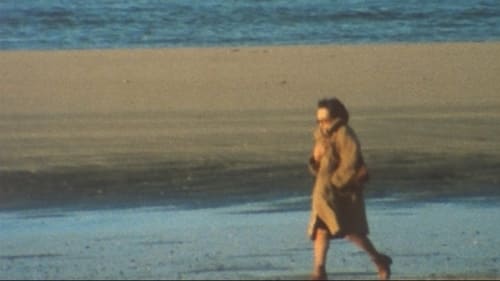
Her whole childhood, Marguerite Duras spent her time moving. Her house in Neauphle-le-Château is the one she has lived in the most, and the one she says: “All the women in my books have lived in this house. All ... ” Duras tells about her house and her garden closely linked to his work, remembers the forest of her childhood and evokes her fear of music.
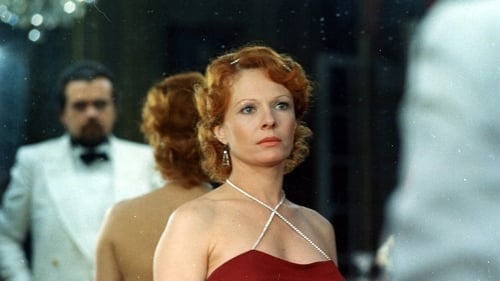
Voix Intemporelle (voice)
India, 1937. Anne-Marie Stretter is the wife of the French ambassador and leads a solitary yet privileged life in Calcutta. The tedium of her existence is relieved by numerous illicit love affairs with government officials, young men who find her an object of desire and fascination. The Vice Consul is driven insane by his love for her and, expelled from the ambassador’s palace, cries like a sick animal. Life continues for Anne-Marie Stretter, the same tedious existence…

Writer
India, 1937. Anne-Marie Stretter is the wife of the French ambassador and leads a solitary yet privileged life in Calcutta. The tedium of her existence is relieved by numerous illicit love affairs with government officials, young men who find her an object of desire and fascination. The Vice Consul is driven insane by his love for her and, expelled from the ambassador’s palace, cries like a sick animal. Life continues for Anne-Marie Stretter, the same tedious existence…

Director
India, 1937. Anne-Marie Stretter is the wife of the French ambassador and leads a solitary yet privileged life in Calcutta. The tedium of her existence is relieved by numerous illicit love affairs with government officials, young men who find her an object of desire and fascination. The Vice Consul is driven insane by his love for her and, expelled from the ambassador’s palace, cries like a sick animal. Life continues for Anne-Marie Stretter, the same tedious existence…
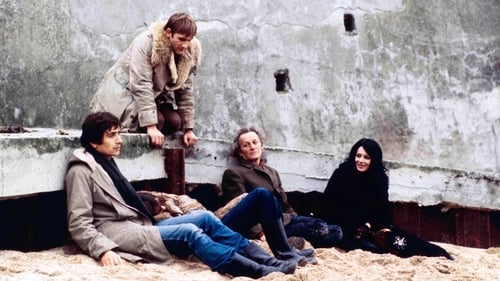
Voice
A man returns to the place he once lived a passionate love affair with a woman who is now dead. So powerful are the emotions that seize him that he imagines she is still alive, and begins to live as if this were the case...

Writer
A man returns to the place he once lived a passionate love affair with a woman who is now dead. So powerful are the emotions that seize him that he imagines she is still alive, and begins to live as if this were the case...

Director
A man returns to the place he once lived a passionate love affair with a woman who is now dead. So powerful are the emotions that seize him that he imagines she is still alive, and begins to live as if this were the case...

(voice)
With little or no embellishment, filmmaker Marguerite Duras offers a simple, often wordless chronicle of a woman's day. She and her friend are seen doing yard work, talking about their families and receiving the occasional visitor. The brightest spot in the day is when a washing machine salesman comes to call.

Author
With little or no embellishment, filmmaker Marguerite Duras offers a simple, often wordless chronicle of a woman's day. She and her friend are seen doing yard work, talking about their families and receiving the occasional visitor. The brightest spot in the day is when a washing machine salesman comes to call.

Director
With little or no embellishment, filmmaker Marguerite Duras offers a simple, often wordless chronicle of a woman's day. She and her friend are seen doing yard work, talking about their families and receiving the occasional visitor. The brightest spot in the day is when a washing machine salesman comes to call.

Writer
The whole film takes place in a single room where representatives of the two political forces and their enemy "the Jew" are gathered. A female character establishes the dialogue between these individuals and comments on the ideology of each; Until the final scene where everyone seems to rally to a common idea.

Director
The whole film takes place in a single room where representatives of the two political forces and their enemy "the Jew" are gathered. A female character establishes the dialogue between these individuals and comments on the ideology of each; Until the final scene where everyone seems to rally to a common idea.

Writer
In a secluded hotel circumscribed by a dense forest Max and Alissa Thor meet Stein and Elisabeth. Max, a professor of future history and an aspiring author, is immediately attracted to the brooding wife of industrialist Bernard Alione, Elisabeth, who is recovering from a miscarriage. Stein, a German Jew and potential writer, is infatuated by Alissa, Max's young wife and former student. During their sojourn the guests' identities gradually meld.

Director
In a secluded hotel circumscribed by a dense forest Max and Alissa Thor meet Stein and Elisabeth. Max, a professor of future history and an aspiring author, is immediately attracted to the brooding wife of industrialist Bernard Alione, Elisabeth, who is recovering from a miscarriage. Stein, a German Jew and potential writer, is infatuated by Alissa, Max's young wife and former student. During their sojourn the guests' identities gradually meld.

Theatre Play

Self
Here Duras assumes a more distant role, less an interviewer than an invested documentarian. Her questions precede footage of her main subject, the sixteen-year-old Romain Goupil, recently excluded from the lycée, among his peers and fellow student revolutonaries. After we see them discuss the complexities of their position and deal with internal dissent, Duras asks Romain if he ever forgets how young he is. Romain replies with a grin: “Totally.”

Self
During this strange and confrontational interview, Duras takes on France’s only female prison warden. In the women’s verbal wrangling we find reflected many contemporary concerns surrounding the ongoing moral disaster of the prison industrial complex.

Writer
A husband and wife meet three years after their formal separation, when they return to the provincial town where they once lived to pick up their divorce decree.

Director
A husband and wife meet three years after their formal separation, when they return to the provincial town where they once lived to pick up their divorce decree.
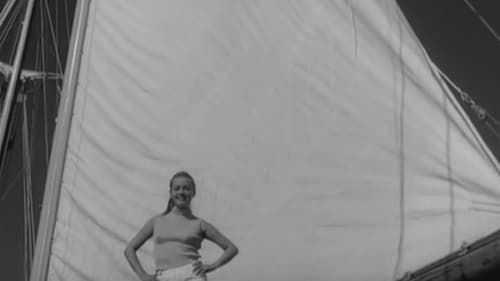
Writer
Alan, after quarreling with his girlfriend Sheila, becomes intrigued by Anna, a mysterious widow who's searching for a sailor she had known many years before. Alan and Anna begin the search on board a yacht bound for Greece, but they don't find the sailor. After a stop in Africa, Louis de Mozambique joins the party and suggests that the sailor may never have existed other than in Anna's mind.
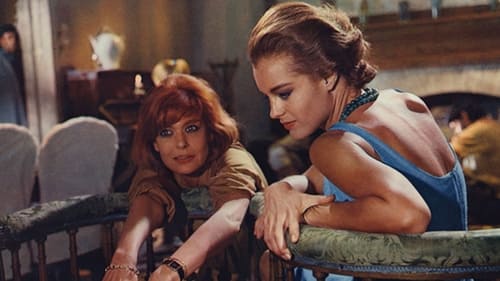
Novel
A female traveling companion seduces a married man and his alcoholic wife.

Screenplay
A female traveling companion seduces a married man and his alcoholic wife.
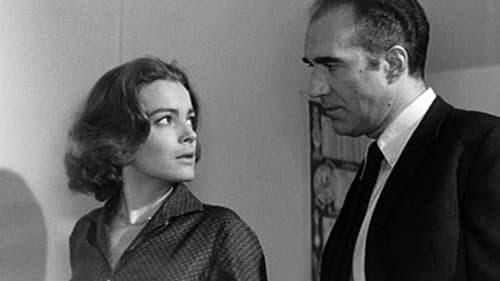
Writer
Drama of an unmarried mother who regrets having had her child fostered and fights its foster parents to have it restored to her.

Writer
A sexually repressed school teacher releases her pent up passions in a series of shocking crimes.
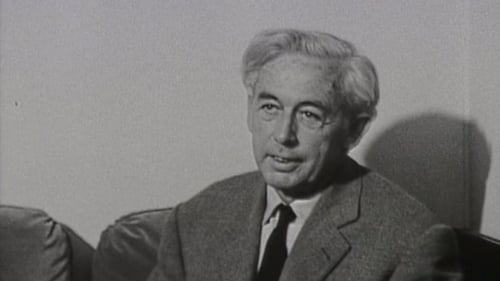
Self
A documentary, originally produced in 1966 for the French TV series "Pour le plaisir," about Robert Bresson's film "Au Hasard Balthazar," featuring interviews and discussions with Bresson, Jean-Luc Godard, Louis Malle, Marguerite Duras and others.

Self
Duras, ever the challenging interviewer, forensically questions a Parisian zookeeper regarding the happiness of the animals in his charge. Intercut with her questions is stark black-and-white footage of the animals themselves behind bars, as they pace the length of their small concrete enclosures. Duras is very much on the side of the big cats. “Are you ever careless?” she asks the zookeeper. When he replies in the negative, Duras says smilingly: “In your position I’d be tempted to be careless”.

Report on the young people of the yéyé period and pop music. Jerk at the Palladium, Beatles, press clippings, questions about the impact of fashion (long hair and accoutrements) and modernity, youth, change, freedom.

Writer
The movie "L'instant de la paix" consists of three segments: 1. "Les rideaux blancs" (France) 2. "Berlin N 65" (West Germany) 3. "Matura" (Poland)

Self
In this episode of Dim Dam Dom, Duras interviews the stripper Lolo Pigalle. A clip of Lolo dancing in a golden dress is followed by an intense and intimate conversation in which Lolo discusses the definition of work, the splitting of the self, and acting vs. sex work.

Self
Duras interviews an exhausted Jeanne Moreau, addressing her friend as vous, despite the fact "the two were close friends for many years, living in neighbouring houses and cooking for each other from the early ‘60s.
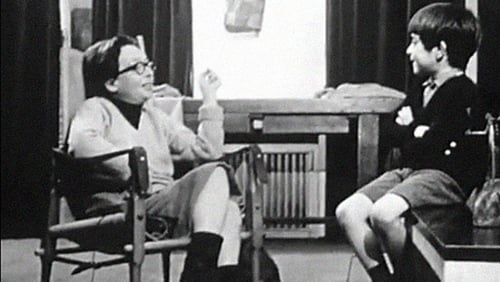
Broadcast once a month, Dim Dam Dom was a TV variety show on the second channel of French public television agency ORTF made up of a series of short sequences presented by one–off guest presenters. On the 30th of April 1965, Marguerite Duras interviewed François, a little seven-year old boy. Duras asked him what he thought about the inventions of the future, school, the usefulness of TV, "Belphégor" and talking horses. Francois answered the writer’s cunning questions with humour, candour and poetry.

Writer
Marin Karmitz's avant-garde short film is a haunting tale about an alcoholic novelist facing a crippling case of writer's block.
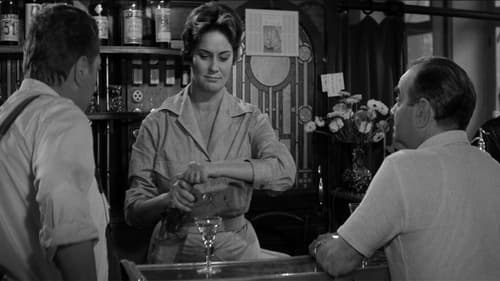
Writer
パリ郊外でカフェを営むテレーズはある日、店の前を通る浮浪者に目を止める。その男は16年前にゲシュタポに強制連行され、行方不明になった彼女の夫アルベールにそっくりであった。テレーズはその男とコンタクトをとるが、その男は記憶喪失だった。
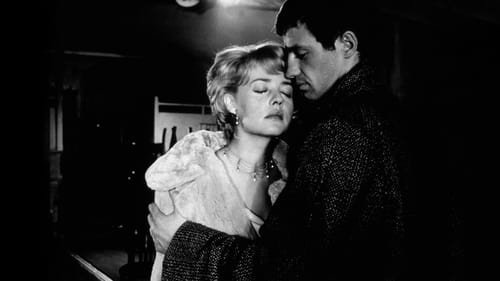
Adaptation
Anne Desbarèdes is a young woman who is married to a wealthy businessman and lives a monotonous existence in the small commune town of Blaye. After indirectly witnessing a murder in a café, she returns to the scene of the crime the next day and meets Chauvin, who informs her in more detail about the events that took place. Mentally unbalanced, Anne begins to believe that Chauvin intends to kill her.

Novel
Anne Desbarèdes is a young woman who is married to a wealthy businessman and lives a monotonous existence in the small commune town of Blaye. After indirectly witnessing a murder in a café, she returns to the scene of the crime the next day and meets Chauvin, who informs her in more detail about the events that took place. Mentally unbalanced, Anne begins to believe that Chauvin intends to kill her.
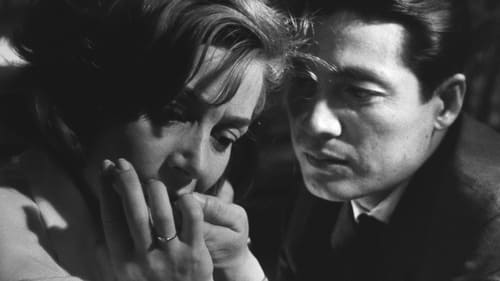
Screenplay
独軍の占領下にあったフランスの田舎で敵兵と密通して断罪された過去を持つ女優が、ロケのために広島を訪れ日本人の建築家と一日限りの情事に耽ける。そして知る、広島の悲劇。時あたかも8月6日。原水禁運動を背景に二人の孤独な会話が続く。焦土から奇跡の復興を遂げたその町は、死の影を決して忘れることはない…。
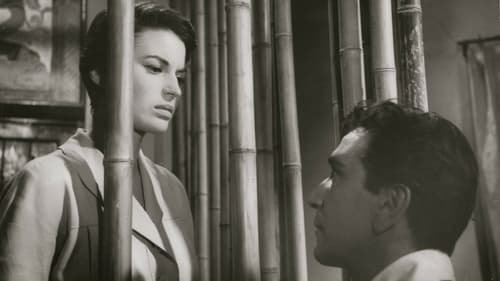
Novel
Twenty-year-old Joseph and his sixteen-year-old sister Suzanne live in the merciless conditions of an intemperate foreign land with their widowed mother. Their mother attempts to exert a hold on her children by involving them in the family's run-down rice plantation. However the siblings seek liberation, and look for this in their romantic lives. Suzanne becomes involved with Michael and Joseph finds a love interest in Claude.

Herself
Marguerite Duras.is interviewed twice, first in 1984 and then in 1993, on her life and work as a writer and filmmaker.
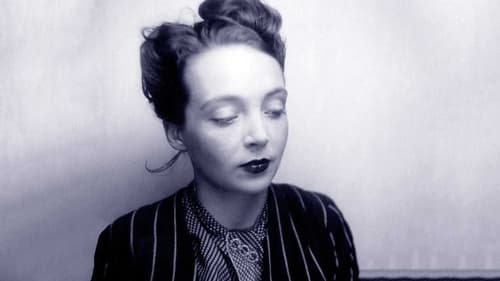
Self
Marguerite Duras still has much to tell us about her words and about her silences. In this film, hers is the only voice we hear. She talks about herself, without excuses, and with the keen wit, the humour, and the straightforward attitude that became her trademark.

Self

Herself
In this interview with Dominique Noguez, Marguerite Duras talks successively about each of her four short films made in 1979: Césarée, Les Mains négatives, Aurélia Steiner (Melbourne), Aurélia Steiner (Vancouver). She touches briefly on the various subjects dealt with: the return to Césarée of Berenice, repudiated for reasons of state, Jewish wandering, the scandal of the camps in the two Aurelia Steiner. Negative Hands as the colonial data of humanity, a film offered to the blacks and Portuguese who clean up Paris before leaving the place. Marguerite Duras also comments, with excerpts, on the various traveling shots that make up the main plot of each of the short films. And the documentary ends with a few words of epilogue: a real pamphlet by Marguerite Duras against dreams, significantly entitled Work and Words.

































































































